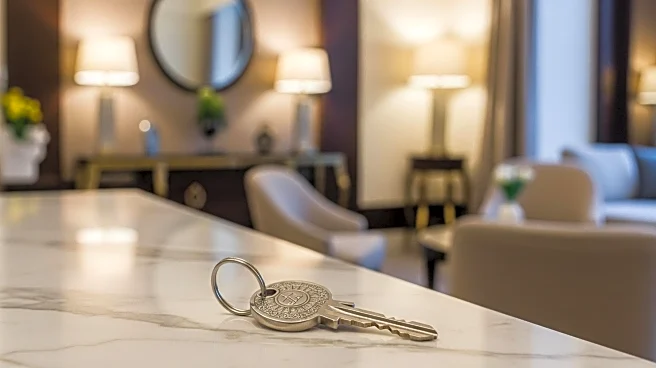What's Happening?
The traditional mid-market hotel sector in Europe is facing economic challenges, prompting investors and operators to convert these properties into serviced apartments or aparthotels. Rising costs, regulatory pressures, and changing market demands have made the conventional hotel model less viable. Serviced apartments offer a sustainable alternative, requiring less operational overhead and providing more extended average stays. Technological advancements further reduce costs and enhance guest experiences, aligning with regulatory and environmental standards. This shift is gaining traction as a viable solution to preserve asset value and improve profitability.
Why It's Important?
The rise of serviced apartments as a solution to the declining mid-market hotel sector is significant as it reflects the industry's adaptation to economic pressures and changing consumer preferences. By offering extended-stay accommodations, serviced apartments meet the demand for flexible and cost-effective lodging options. This trend highlights the importance of innovation and sustainability in the hospitality industry, providing a pathway for traditional hotels to remain competitive. As regulatory and environmental standards tighten, serviced apartments offer a practical solution that aligns with market expectations.
What's Next?
As the conversion of traditional hotels to serviced apartments continues, stakeholders will likely monitor market performance and consumer feedback to assess the success of this strategy. Positive outcomes could lead to increased investment in serviced apartment projects, further transforming the hospitality landscape. The industry may also explore new technologies and partnerships to enhance guest experiences and operational efficiency. As serviced apartments gain popularity, they are poised to play a crucial role in the future of European hospitality.
Beyond the Headlines
The shift towards serviced apartments may influence the broader hospitality industry, encouraging more companies to explore alternative lodging models. This trend could lead to increased collaboration between hospitality providers and technology companies, promoting innovation and sustainability. Additionally, the focus on extended-stay accommodations highlights the evolving consumer preference for flexibility and convenience, potentially driving long-term shifts in industry practices and market dynamics.









